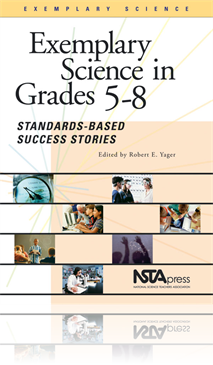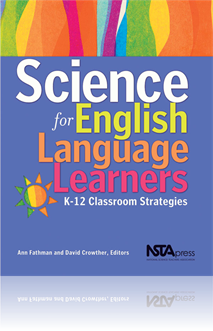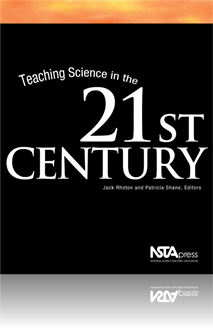All Resources
Book Chapter
Creating a Classroom Culture of Scientific Practices
Scientific practices are the activities that scientists engage in as they investigate the natural world. These daily practices include asking question...
Book Chapter
More Emphasis on Scientific Explanation: Developing Conceptual Understanding and Science Literacy
This chapter describes a process for engaging middle school students in writing scientific explanations in the context of project-based science. In fo...
Book Chapter
Traveling the Inquiry Continuum: Learning Through Teacher Action Research
This chapter addresses the More Emphasis on Teaching and the Content and Inquiry Standards from the National Science Education Standards (NSES). Using...
Book Chapter
Modeling: Naturally Selecting an Effective Teaching Method
This chapter examines middle school level curriculum for evolution which incorporates many aspects of the More Emphasis conditions from the National S...
Book Chapter
Teaching English Through Science and Science Through English
What better way to learn English than through the study of science, and what better way to learn about science than experiencing it through language a...
Book Chapter
Perspectives on Teaching and Integrating English as a Second Language and Science
In the chapter, the authors briefly review the evolution of ESL instruction and science education. They discuss current promising practices that integ...
Book Chapter
Learners, Programs, and Teaching Practices
The changing demographics of the United States and recent focus on educational standards have made it increasingly critical to address the needs of th...
Book Chapter
Planning Science and English Instruction: One Teacher's Experience
The authors of this chapter describe how to incorporate science, language arts, and ESL standards into the classroom. They offer practical suggestions...
Book Chapter
Strategies for Teaching Science to English Learners
Teachers who teach science play a key role with English language learners (ELLs). In this chapter, the authors discuss strategies teachers can use to...
Book Chapter
Strategies for Assessing Science and Language Learning
In this chapter, the authors give an overview of principles for assessing language learners in science. They describe how to plan assessment, how to u...
Book Chapter
Science Beyond Classroom Walls: Fairs, Family Nights, Museums, and the Internet
A field trip is only one example of how valuable connections between formal and informal education settings are for the teaching and learning of scien...
Book Chapter
Designing Lessons: Inquiry Approach to Science Using the SIOP Model
Using the Sheltered Instructional Operation Protocol (SIOP) Model, the authors in this chapter discuss science inquiry, the SIOP Model, and how to ble...
Book Chapter
Lessons That Work: Science Lessons for English Learners
In this chapter, the authors present formats for science lesson plans that incorporate inquiry and language and science objectives. Teachers from elem...
Book Chapter
Standards for Science and English Language Proficiency
In this chapter, the authors describe the development of the National Science Education Standards (NSES) and English language proficiency standards. T...
Book Chapter
The Impact of Technology on the 21st Century Classroom
This chapter explores how educational technology has changed and will continue to change the ways that teachers teach and students learn in classrooms...




